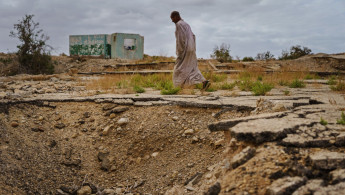UN body says efforts on climate crisis 'insufficient' as concerns rise over impact on MENA region
The Intergovernmental Panel on Climate Change (IPCC) have said that what is currently being done to tackle the global climate crisis is "insufficient".
The UN body warned on Monday in a summary 2023 climate change report that global warming increases may come with climate-driven food and water insecurity and rapidly escalating hazards.
The full edition of the report is due to be published soon. Despite their warning, the IPCC have also said that there is hope for a "liveable" future.
“If we act now, we can still secure a liveable sustainable future for all… mainstreaming effective and equitable climate action will not only reduce losses and damages for nature and people,” IPCC Chair Hoesung Lee said.
However, climate groups have expressed concern over "worrisome" regional impacts of climate change on the Middle East specifically.
Concerns are growing due to expectations on how local temperature and precipitation are projected to change.
In previous reports the IPCC and other climate experts have predicted that living conditions in desert regions will worsen.
In the Middle East, climate change has already increased temperatures and decreased rainfall, and the number of days with temperatures of over 40ºC are expected to increase over the next decades, the IPCC said in 2022.
Without swift and sizable emission cuts, countries in the Middle East could face serious threats to food security, frequent and intense dust storms, and heat and humidity "that exceeds the limit of human survivability", the IPCC stated.
Without these cuts, water is also likely to become scarcer and there could be a rise in sea levels, threatening agriculture.
This could lead to a decrease in food security and an impact on supply chains and crops.
"With the temperature increase and precipitation reduction there are serious concerns of the primary effects of this on the livelihoods of citizens... Tourism needs water, agriculture needs water, livelihoods and productivity need water," Karim Elgendy, Associate Fellow at Chatham House said last week.
Elgendy said that tertiary implications should be a point of concern considering environmental effects on social structures and movement and resources and migration, stating "the region has to be prepared for what effect these implications could have environmentally and socially".
The region could also suffer the effects of climate change in other areas. For example, if climate change hits trade and international supply chains, it can reduce the availability of goods and damage markets for exports.
Economic shocks caused by the crisis could also lead to financial instability.
Camille Ammoun, an associate fellow at the University of Beirut, highlighted that although Gulf countries have the means to adapt, "they’re still very reliant on and… have not successfully and drastically diversified their economy away from [gas] extraction".
"We cannot expect these countries to be fully on board with a global policy that will contribute to global energy transition and decrease global fuel demand," she said.
"I think we should focus more specifically, especially in the Gulf region on diversification because it's an enabler for climate action globally given the weight MENA countries have in global diplomacy fora."





 Follow the Middle East's top stories in English at The New Arab on Google News
Follow the Middle East's top stories in English at The New Arab on Google News


